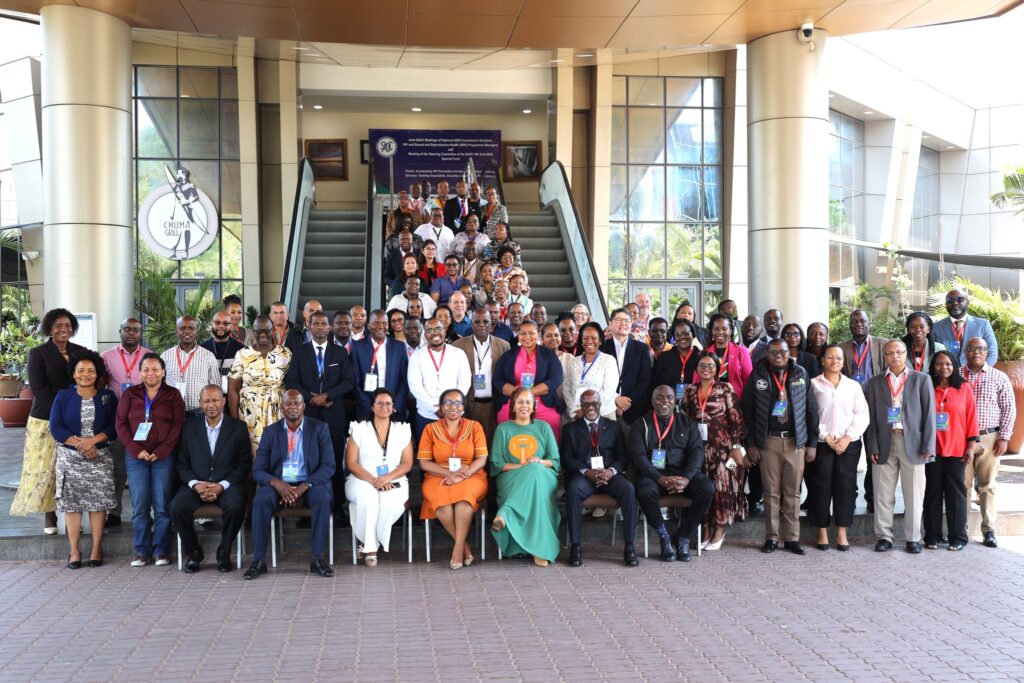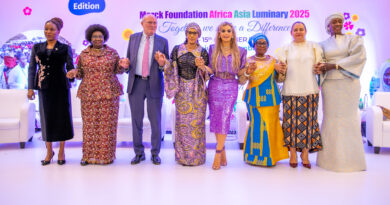SADC Calls for Youth-Led Action and Greater Funding to Combat HIV
The Joint Meeting of National AIDS Commission Directors and Programme Managers responsible for HIV and Sexual and Reproductive Health (SRH) from the Southern African Development Community (SADC) region concluded in Lusaka with a call for increased domestic financing, greater integration of HIV and SRH services, and active youth involvement to accelerate HIV prevention and access to SRH services across the region.
Held under the theme “Accelerating HIV Prevention and Access to Integrated SRH Services: Tackling Inequalities, Securing a Sustainable Response”, the meeting brought together Directors of National AIDS Commissions, senior government officials, development partners, UN agencies, civil society representatives, researchers, and SADC Secretariat officers.
In her welcome remarks, Ms Duduzile Simelane, Director of Social and Human Development at the SADC Secretariat, highlighted the region’s leadership in HIV response. She noted that seven SADC member states—Botswana, Eswatini, Lesotho, Malawi, Namibia, Zambia, and Zimbabwe—have already achieved the UNAIDS 95–95–95 targets, while others, including Tanzania, are close to reaching the goals.
Despite progress, Ms Simelane stressed that new HIV infections remain high among adolescent girls, young women, and key populations, urging deliberate investment in young people through integrated approaches that place human capital development at the centre of socio-economic growth. She called for initiatives to keep girls in school, reduce early and unintended pregnancies, and break cycles of poverty.
Dr Rajoelina Miary Toky Herindrainy, Director of Family Health in Madagascar and current SADC Chair, emphasised the importance of integrating HIV, SRHR, and Gender-Based Violence (GBV) interventions to address the complex needs of vulnerable groups. “By combining our strengths, resources, and political will, we can reduce inequalities and make HIV/SRHR/GBV integration a pillar of public health and sustainable development,” she said.
Dr Kebby Musokotwane, Director General of Zambia’s National AIDS Council, welcomed delegates and highlighted the SADC region’s resilience in reducing new infections and improving treatment access through strong political will, community engagement, and evidence-based interventions.
Dr Anne Muthoni Githuku-Shongwe, UNAIDS Regional Director for East and Southern Africa, praised SADC for keeping HIV prevention high on the political agenda despite tightening global resources. She cited multi-sectoral approaches, increased domestic funding, and legal reforms to empower youth as critical to sustaining health gains.
Youth participation was highlighted by Ms Thubelihle Nyoni, a 28-year-old Zimbabwean delegate, who underscored the value of mentorship and collaboration between governments and civil society in supporting young people’s access to HIV and SRHR services.
The meeting reviewed key documents, including the Minimum Standards for Integrating HIV, SRHR, SGBV, and Emergency Response in SADC, the Mid-Term Review of the Regional SRHR Strategy, the Fourth Biennial SRHR Scorecard Report 2025, and the SADC HIV Annual Progress Report. These will be submitted to SADC Ministers of Health and HIV/AIDS in November 2025 for endorsement.
A Health Financing Update, prepared by the SADC Secretariat, UNAIDS, Global Fund, World Bank, WHO, UNICEF, UNFPA, and GAVI, noted declining external aid, which threatens progress. The update recommends strengthening local manufacturing, pooled procurement, and sustained political commitment to health as a long-term investment in socio-economic growth.
The meeting was convened with support from the African Union Development Agency (AUDA-NEPAD), UNAIDS, UNFPA, UNDP, UNICEF, WHO, Sweden, and 2gether4SRHR.



